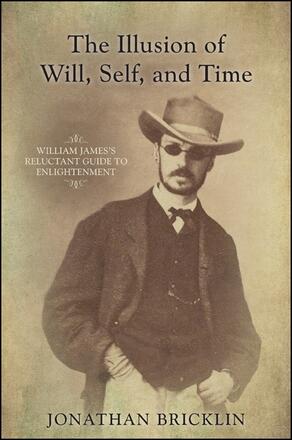
The Illusion of Will, Self, and Time
William James's Reluctant Guide to Enlightenment
Alternative formats available from:
Discusses how William James’s work suggests a world without will, self, or time and how research supports this perspective.
Description
A Seminary Co-op Notable Book of 2016
William James is often considered a scientist compromised by his advocacy of mysticism and parapsychology. Jonathan Bricklin argues James can also be viewed as a mystic compromised by his commitment to common sense. James wanted to believe in will, self, and time, but his deepest insights suggested otherwise. "Is consciousness already there waiting to be uncovered and is it a veridical revelation of reality?" James asked shortly before his death in 1910. A century after his death, research from neuroscience, physics, psychology, and parapsychology is making the case, both theoretically and experimentally, that answers James's question in the affirmative. By separating what James passionately wanted to believe, based on common sense, from what his insights and researches led him to believe, Bricklin shows how James himself laid the groundwork for this more challenging view of existence. The non-reality of will, self, and time is consistent with James's psychology of volition, his epistemology of self, and his belief that Newtonian, objective, even-flowing time does not exist.
Jonathan Bricklin is a Program Director at the New York Open Center and the editor of Sciousness.
Reviews
"Bricklin's coverage is … vast, including eastern as well as western thinking … with persistence one may encounter in it some of the deepest problems in philosophical psychology." — Journal of the Society for Psychical Research
"We are taken step by step in a stunning tour of many powerful yet still disputed ideas that were fervently argued a century ago. Congratulations to Jonathan for a book that every psychologist should read whether doubtful of current paradigms or searching for new ones but mostly, for an enriching experience that brings these age-old controversies into relation with findings in modern physics and psychology." — Jason W. Brown, MD, Center for Cognition and Communication
"Despite all the interest in James the scholar and James the man, there remains an absence of highly readable books that bring some of the most colorful aspects of James' own thought, along with his somewhat mercurial personal character, to the modern reader. Bricklin's book does remarkable service in this vein, collecting many aspects of James' thought around the general theme of free will, a question that James struggled with his whole life, and which penetrated many dimensions of his thought." — Allan Combs